New U.S. yearly meeting formed
Sierra-Cascades Yearly Meeting (SCYM), a new Christ-centered, LGBTQ+ inclusive yearly meeting in the Pacific Northwest, was established on July 27, during annual sessions of Northwest Yearly Meeting (NWYM) in Newberg, Ore., by Friends of four monthly meetings departing from NWYM as a result of its split announced earlier this year.
As reported in the April 2017 issue News column of Friends Journal, NWYM has been contending with differing approaches to sexuality and gender among its monthly meetings since 2015. At that time four meetings had adopted practices and/or policies that support sexual and gender minorities, in contrast to the published Faith and Practice of NWYM. The meetings include West Hills Friends Church in Portland, Ore.; Camas (Wash.) Friends Church; Eugene (Ore.) Friends Church; and Klamath Falls (Ore.) Friends Church.
This past January, NWYM’s Administrative Council announced plans for a restructuring that would split NWYM into two yearly meetings; one to retain the name of Northwest Yearly Meeting, and a second unnamed yearly meeting, which has now emerged as Sierra-Cascades Yearly Meeting.
The new group reported on the process in an epistle signed by Jan Wood, acting clerk of SCYM, and an epistle committee (James Hibbs, Julie Peyton, and Tom Stave): “It has been difficult. We need to make clear our desire to be radically inclusive, as Jesus was, without falling into the same exclusionary trap that caught Northwest Yearly Meeting.” The full epistle is available on SCYM’s new website at scymfriends.org/2017-epistle.
The following Friends were approved to serve the new yearly meeting: Cherice Bock and Eric Muhr as co-presiding clerks; Jon Kershner as assistant clerk; and Matthew Staples as recording clerk.
Other local meetings in the NWYM area can choose to join with SCYM or go independent. The legal separation deadline, set by the Administrative Council, is June 30, 2018.
Baltimore Friends witness for bail reform
Friends in the Baltimore, Md., area are continuing their weekly court watch witness after the implementation of new standards for assigning bail. On July 1, new regulations went into effect that ask judges determining bail requirements to consider factors other than ability to pay when setting bail for individuals accused of a crime, specifically factors such as the accused’s perceived flight risk (likelihood of attending or skipping future court hearings).
In May 2015, 30 members of Homewood and Stoney Run Meetings in Baltimore attended the bail hearing of Allan Bullock from Sandtown-Winchester neighborhood in West Baltimore. Bullock, then 18, stood accused of throwing two orange traffic cones which broke the windshields of two police cruisers during the unrest following Freddie Gray’s death. Attendance at Bullock’s bail hearing began a weekly court watch where local Quakers attended each district court in the city as observers, seeking to understand how the system works for and against the people before it.
At the request of a Quaker in the Public Defender’s office, the group focused on attending money bail hearings. A large coalition of churches and community groups, spearheaded by Annapolis (Md.) Meeting, began to work on legislation for the elimination for money bail.
Friends found that most low-level bail hearings proceed without any observers except those directly involved, and that defendants with similar history and charges get vastly different bail decisions depending on the judge that reviews their case. Defendants who can make bail are released, but those with few resources must stay in jail until their trial, often three weeks or more. During that wait, the detained might lose a job or possibly a home. Friends participating in the court watch supported reforming this system to be less disruptive to the lives of the mostly poor, mostly minority people who are affected by it.
Since Friends began their court watch, Maryland’s highest court determined that imposing impossible-to-pay money bail for poor defendants is unconstitutional. The change may result in more poor nonviolent defendants being released on their own recognizance, or promise to appear in court, without paying money bail. Additionally, defendants with a greater likelihood of reoffending, or who pose higher risk to the public, may be denied bail and instead held until trial.
Columbia Meeting observes Sabbath of Remembrance
On June 18, Columbia (S.C.) Meeting observed a Sabbath of Remembrance for the second anniversary of the massacre at Mother Emanuel AME Church in Charleston, S.C. The massacre took place on June 17, 2015, when a gunman entered the church and fired at those present. The South Carolina Christian Action Council (SCCAC) asked congregations to devote their weekly worship to this theme, testifying to the continuing racial division and injustice in the state and nation.
The Racial Justice and Healing Workgroup of SCCAC developed suggested guidelines for worship, based on readings from the Revised Common Lectionary. Each congregation was encouraged to adapt these suggestions to their needs and customs. Columbia Meeting identifies itself as unprogrammed, so any order of worship represents a departure from the norm, but Friends agreed that it was warranted in this instance.
Friends Toni Etheridge and Arnold Karr developed a program consisting of a shortened period of unprogrammed worship, followed by a series of songs, readings, and vocal ministry, including “Walk a Mile in My Shoes” by Joe South, the spiritual “Steal Away to Jesus,” and “A Prayer for Peace” hymn. Friends David Randall and Gerald Rudolph, along with Karr, selected and prepared music for the service. Photographs and quotations by or about the 12 persons (including survivors) at the Bible study in Mother Emanuel were displayed in the worship space.
Flushing Meeting participates in Bowne House Museum event in Queens
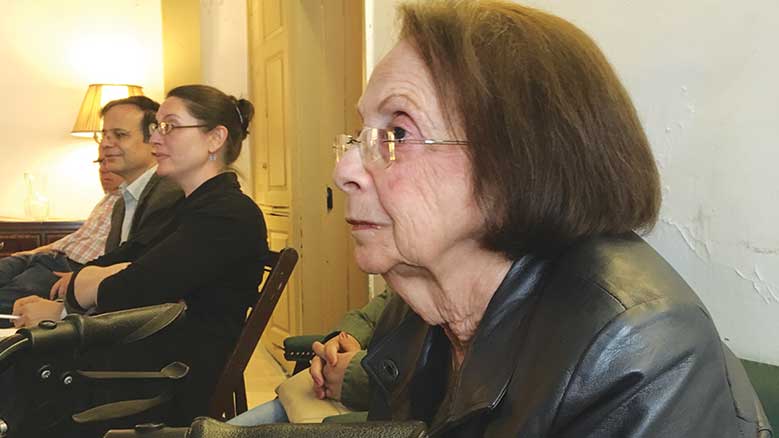
On May 20, Friends from Flushing (N.Y.) Meeting participated in a roundtable discussion about “Sacred Sites and Community in Queens” hosted by the Bowne House Museum in Flushing, Queens, N.Y. The discussion explored the development of the Flushing neighborhood into the richly concentrated center of religious diversity that it is today.
The John Bowne House is an historic home built around 1661; it was the location of a Quaker meeting in 1662 that resulted in the arrest of its owner, John Bowne, by Peter Stuyvesant, Dutch Director-General of New Netherland. Bowne appealed his arrest successfully, establishing a precedent for religious tolerance and freedom in the colony.
The discussion took place in the former kitchen of the Bowne House, the very location where Friends first met in Flushing in 1662 prior to the construction of the Flushing Meetinghouse. The event was hosted by Bowne House director of education Lizzie Martin; was moderated by Tony Carnes, editor and publisher of A Journey through NYC Religions; and included presentations by Joseph Akus, docent of the Bowne House Museum and a Catholic priest with Dignity New York, and Richard Cimino of the University of Richmond, who has authored several books on religion. Participants also included representatives from Flushing Meeting, the Hindu Temple Society of North America, and Opus Dei.
The discussion began with an overview by Joseph Akus of the early European settlements in the Americas and then focused on the settlement of New Netherland by the Dutch. Joan Kindler, former clerk of Flushing Meeting, spoke about John Bowne and the early Quakers of Flushing. She also spoke about the inhabitants of Flushing who signed the Flushing Remonstrance, helping to gain religious freedom for the Quakers and the settlers to follow. Kindler emphasized that while some of the signers later became Quakers, they were not Quakers at the time of the signing.
Representatives of the Hindu Temple Society of North America and Opus Dei spoke about their respective histories and personal experiences on Bowne Street and in the community. Tony Carnes noted that Flushing is home to 414 houses of worship. He referred to a study that estimates the value of the social services provided by Flushing’s faith-based organizations at $124 million. There was general agreement that the religious communities of Flushing can continue to thrive in the face of rapid development by maintaining their longstanding dedication to serving the community.
Liz Di Giorgio, a member of Flushing Meeting for 20 years who was in attendance at the event, commented on living in Queens: “I am deeply appreciative of the pluralism that characterizes my educational community. I am also deeply grateful for the spirit of cooperation and mutual respect that characterizes the interfaith community of Flushing, New York.”
Flushing Meeting also holds a monthly interfaith breakfast every first Sunday at the Flushing Meetinghouse. Hosted by meeting co-clerk John Cho, the event aims to nurture the community’s spirit of interfaith cooperation. For more information, visit the meeting website at flushingfriends.org.
This item has been slightly expanded for the online version.
Retirement
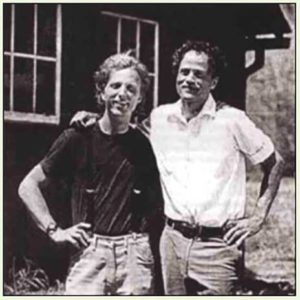
After 33 years of service, Herb Walters will retire as executive director of the Listening Project, a North Carolina nonprofit offering community-based solutions for transformative change. The Listening Project grew out of Walters’s work as founder, in 1981, of Rural Southern Voice for Peace (RSVP), a peace and justice publication for social activists in the rural south. A member of Celo Meeting in Burnsville, N.C., Walters started the organization with support from his wife, Marnie; Arthur Morgan School (AMS), a Quaker-founded boarding and day school in Burnsville; Ernest Morgan, cofounder of AMS; Celo Meeting; and other residents of Celo community and Yancey County, N.C.
Since its inception in 1984, the Listening Project has helped grassroots communities in the United States and internationally achieve transformative change around issues of social, economic, and environmental justice. The Listening Project process hinges on building relationships through deep listening, which increases empathy, understanding, trust, and mutual respect with both friend and adversary. The guiding principle is that “with an open heart and mind we can experience compassion and empathy for others, including those who oppose us.”
In October 2016, Walters published The Listening Project: Stories and Resources for Transformative Personal and Community Change, a book that summarizes his three decades of work as founder of the project. In his own words, “The heart of the matter is that all community change starts from changes within individuals.”
In the coming months, Walters and others who have participated in successful projects will be providing trainings for individuals so that organizations can begin to conduct their own Listening Projects and train others to use this resource for change. Friends and interested organizations can learn more at listeningproject.info/contactus.php.


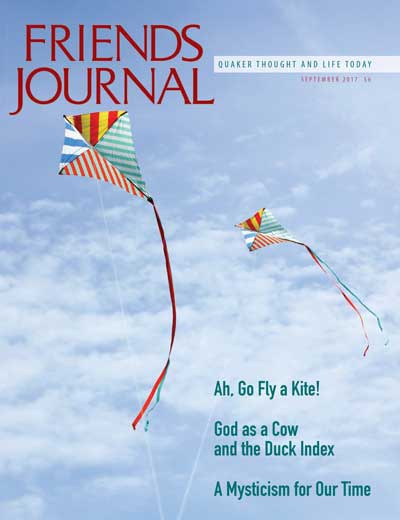
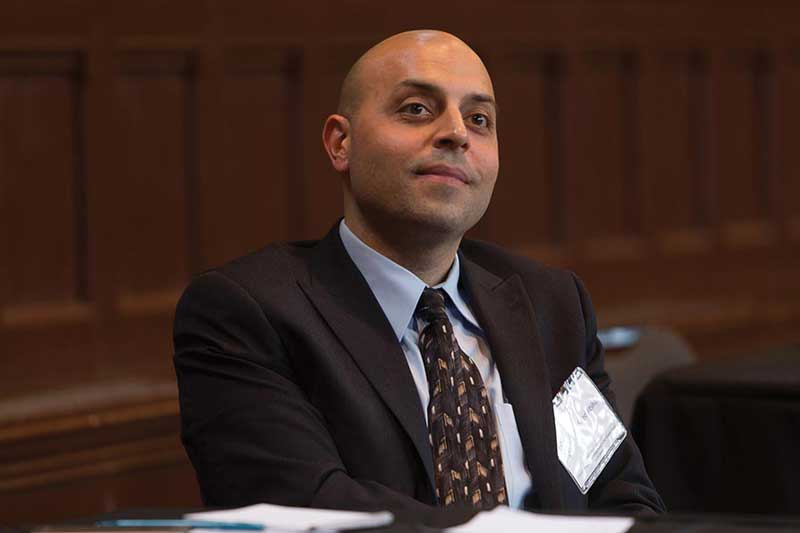

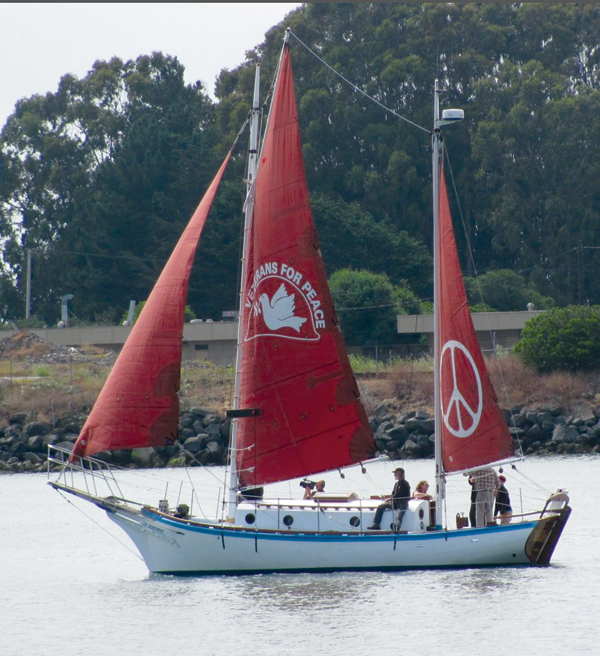
Comments on Friendsjournal.org may be used in the Forum of the print magazine and may be edited for length and clarity.